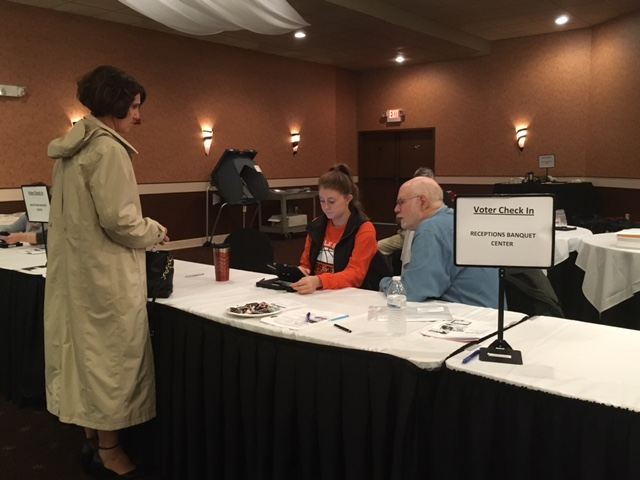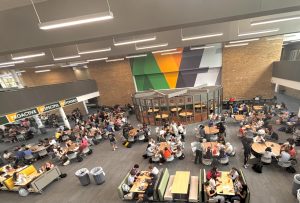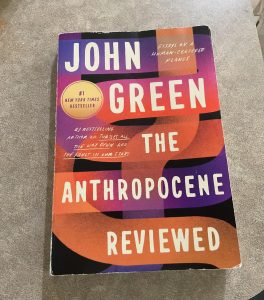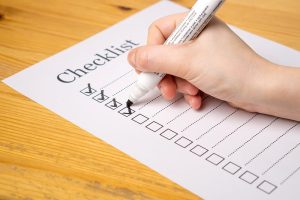‘Polling’ our weight
Seniors work at local elections
CIVIC DUTY. Senior Katherine Dunne checks a voter into the polling location. At each check in point, there must be one Democrat and one Republican (worker) for consistent “equal representation.” The seniors who worked alternated jobs of checking people in, welcoming people, and passing out ballots. Photo courtesy of Jenna Bao.
November 8, 2017
18-year-old seniors got to share their votes for the first time on Tues. Nov. 7. However, many opted to head to the polls not as voters, but as workers.
Anyone 17 or older (who is a citizen and has not been convicted of a felony) may sign up to work at polling locations throughout the county.
In particular, AP Government teachers Mr. Kevin Wittman and Mrs. Holly Hodel encouraged students to try out the unique experience. Students could sign up by completing forms through their government teachers and may receive extra credit for writing a report following the experience.
“I did it to gain experience of the process so I know what to expect when I vote in the next election,” said Melinda Looney, 12.
Working the polls consisted of reporting at 5:30 a.m. to prepare each location for the voters who began arriving at 6:30 a.m. Doors closed at 7:30 p.m., so the day ended for most workers by 8:30 after tearing down the equipment.
Duties of Precinct Election Officials included helping voters check in, solving issues with the scanning machines, and generally trying to prevent any incorrect action/potential fraud.
“It was very laid back and chill; it felt good to help out people, especially ones with kids, because of how nice and grateful everyone wa. We had lots of drinks and snacks,” and Matthew Schwartz, 12.
Since this was an off year for elections, voter participation was relatively low.
“I was surprised at how slow the work was. I was able to do some of my homework because only a few people would come in at once and never in large crowds,” Schwartz said.
Prior to Tuesday, workers all had to attend four hour training sessions with the Board of Elections and set up the polling stations Monday evening. For all this time, they were paid with a sum of about $180.
“I would do it again–everyone was nice, and it was some good cash money,” Schwartz said. (To clarify, no one was paid in cash.)
There were no Congressional seats on the ballot this year, but one could vote for school board members, judges, city councilmen, and specific issues, all of which government students discussed in class.







